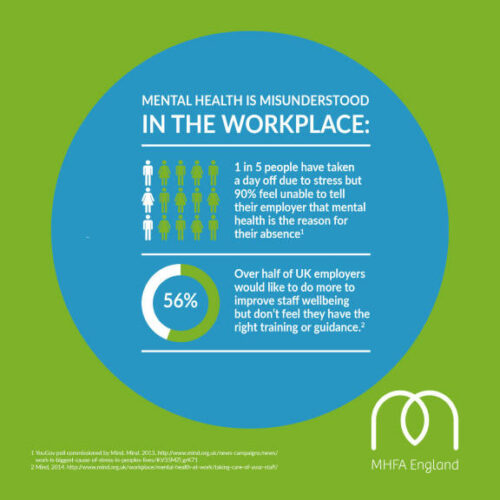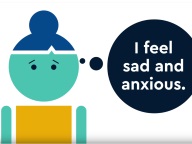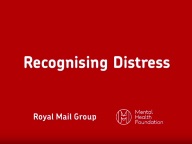Health & Safety
Mental Health
Common Misconceptions
You’re either Mentally ill or Mentally healthy.
Not true! Like any other illness, you can suffer from a minor illness, such as dodgy knees or a light summer cold which does not make you sick, the same with mental illness. A mentally healthy person can have emotional experiences, even in a recent study less than 20% of those surveyed said they were in optimal mental health, so this should be regarded as a sliding scale.
Mental Health is a weakness.
Someone suffering from anxiety or depression can still be mentally strong, just the same as someone with diabetes can still be physically strong.
You can’t prevent mental health problems.
There are certain mental health issues that can’t be avoided, however, others can be avoided with a healthy diet, exercise and a good sleep pattern.
Mentally ill people are violent.
Perhaps this misconception is media-driven, but most people who are violent have no direct link to mental illness. In a study of violent criminals on 7.5% of crimes committed are due to mental illness. More likely any violent acts would be a factor of poverty, homelessness, unemployment and substance abuse.
Mental Health problems are forever.
Most health problems are treatable and transitory. Up to 90% of mental illness can be relieved by a combination of therapy and medication.
So where can you go if you believe you are suffering a bout of mental illness?
Your GP.
For many of us, our local GP practice is the first place we go when we’re unwell. Your doctor is there to help you with your mental health as well as your physical health.
Employee Assistance Programme.
Your Employee Assistance Programme is open to all members of staff and is designed to help people with all kinds of practical and emotional issues such as well-being, family matters, relationships, debt management, workplace issues, and much more. For BT People only 0800 9176767
Occupation Health.
Your OH team’s priority is your well-being at work. They can help support you in accessing further services.
IAPT service (NHS).
Improved Access to Psychological Therapies is an NHS service that provides talking therapies for common difficulties, like worry and low mood. People can self-refer to many IAPT services, or alternatively their GP can refer them. They can find their local IAPT through the NHS website: www.nhs.uk
Samaritans.
Samaritans offer a safe place for people to talk any time they like, in their own way – about whatever’s getting to them. 24/7 support for people who are in despair or suicidal. www.samaritans.org
Mind Infoline.
Mind can provide information on a range of topics including types of mental health problems, where to get help, medication and alternative treatments. www.mind.org.uk




